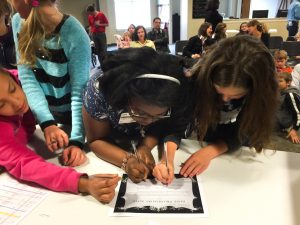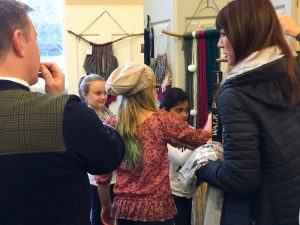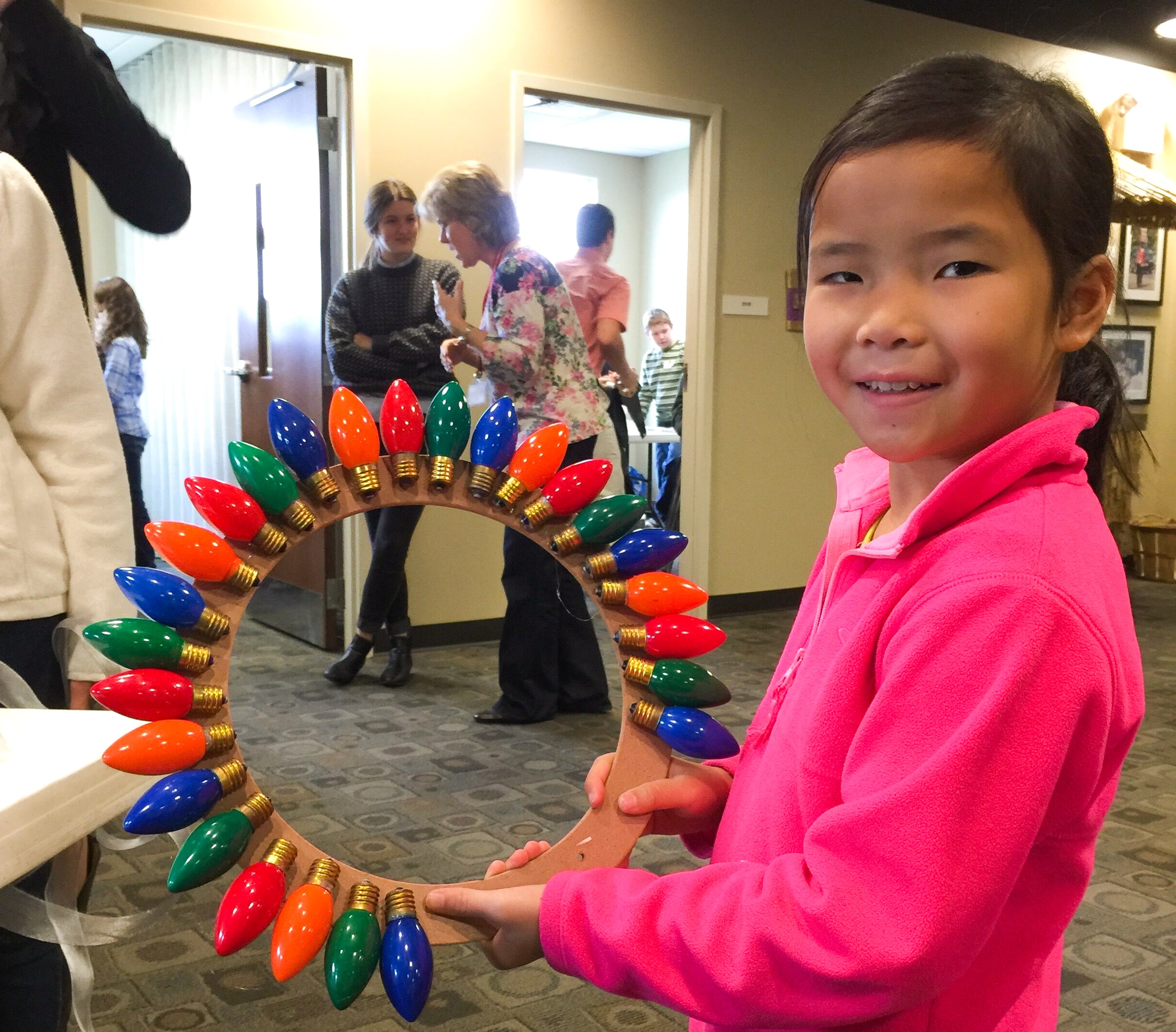For 51 weeks of the year, the front lobby of Willowdale Chapel’s Kennett Square campus is an airy space with cozy chairs and a café. But one Sunday each December, the room transforms into the HOPE Market—a vibrant, bustling marketplace operated by the church’s youngest entrepreneurs.
The wooden tables where people usually chat over coffee instead display greeting cards and candles, wooden clocks and mini-marshmallow shooters, all handcrafted by the children at Willowdale. With each sale, the kids work toward paying back the small loan they received from the church to make their item. Once that’s done, they give their profits to HOPE International. Last year, all their work totaled up to being a significant gift of $5,000.
“Part of our church’s vision is to love the world that Jesus is working to restore, and we wanted our youth to really learn what that means and to be a part of it,” says Jodi Byrne, who serves as a children’s ministry pastor at Willowdale Chapel, a church network in southeastern Pennsylvania that partners with HOPE.
The kids are invited to explore the role they play in that restoration during the three months leading up to the HOPE Market.
They start by studying how God has created everyone—including themselves!—with gifts and abilities. They also learn about how HOPE International invests in hardworking men and women around the world, equipping them to use their God-given strengths to provide for their families and build up their communities.
Then, the children have the chance to experience HOPE’s model firsthand, by receiving a $20 loan from the church and using those funds to create a product to sell at the HOPE Market.
Breaking off into small groups, they consider potential products and challenge each other to think like true business owners.
Jodi explains, “We teach them about the market, so they’re encouraged to not just look at how much they love the finished product but to weigh the cost, to figure out, will there be good profit margin? And also, will they be able to make it with the steps and the time given for the Market?”
In a special loan disbursement ceremony that mirrors HOPE’s, each group receives its loan, which members use to purchase the materials they need to make their selected product. They also get a banking book to keep track of their funds and any other costs related to the process.
Over the next two months, they go to work, each week making more progress on their selected craft. In the final week before the Market, the teams focus on advertising, creating posters to catch the eyes of potential customers.
The day of the HOPE Market is filled with joy, exuberance, and enthusiasm—not to mention a few people breathing sighs of relief as they find the perfect Christmas gift for a loved one. Even more importantly, the experience serves as an opportunity for the whole church to respond to its call to love and serve others.
 “Our church really embraces it,” Jodi remarks. “We’re trying to encourage our church to partner in God’s work, even when it’s uncomfortable, even when it’s far away—we’re trying to live out the belief that it all matters.”
“Our church really embraces it,” Jodi remarks. “We’re trying to encourage our church to partner in God’s work, even when it’s uncomfortable, even when it’s far away—we’re trying to live out the belief that it all matters.”
Martin Campagna, who participated in the market last year, selling “monkey’s fist” keychains, zipper pulls, and luggage tags, says he was pleasantly surprised by the church’s enthusiastic response: “I didn’t expect that many people to be selling things. And it was also cool because a ton of people were buying everything, since it was all going to HOPE.”
As Jodi reflects, much of the purpose of the HOPE Market is to simply plant seeds among church members—of all ages. “Sometimes the world can seem hopeless, but this is a reminder that we can do things that make a difference,” she says. “We don’t need to be ones who just sit back and sink in the problems of the world; we can be part of the solutions.”
If you’d like to learn more about hosting an event like the HOPE Market at your church, please contact the HOPE representative in your region and read more on our website!
















